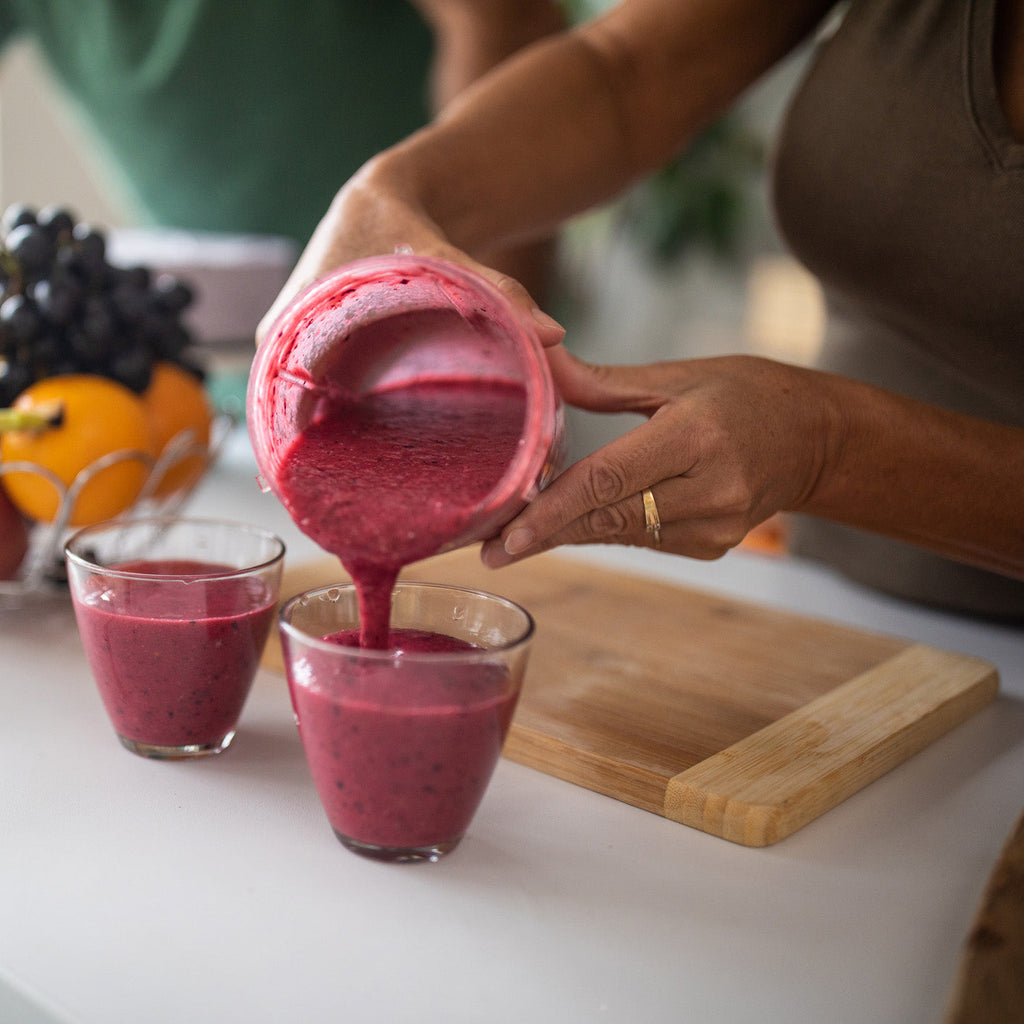Most of us want to stay healthy and active as we age. We want to feel good in our bodies, stay sharp mentally, and maintain independence for as long as possible. While there’s no single magic bullet for healthy ageing, research continues to highlight the powerful role that food, especially certain nutrients, can play.
Two new studies have just added to the growing body of evidence pointing to one particular group of compounds: flavonoids.
So, what are flavonoids, where do you find them, and what can they do for you as you age? Let’s take a closer look.
What Are Flavonoids?
Flavonoids are natural compounds found in colourful plant foods like berries, tea, cocoa, onions, apples, citrus fruits, and herbs. They give plants their colour and flavour—and offer antioxidant, anti-inflammatory, and brain-supporting benefits that may help slow the effects of ageing.
New Research Shows Promise for Physical and Mental Health
Two large-scale studies published this year (2025) have brought new insight into how flavonoids might help support healthy ageing.
Study 1: Flavonoids and healthy ageing in older adults
The first study, published in the American Journal of Clinical Nutrition, looked at flavonoid intake in over 85,000 older adults in the US, including more than 62,000 women and 23,000 men aged 60 and over.
Researchers analysed participants' diets alongside markers of ageing, including:
- Frailty
- Physical function
- Mental health
The findings were striking.
Among women with the highest flavonoid intake, researchers found:
- A 15% lower risk of frailty
- A 12% lower risk of impaired physical function
- A 12% reduced risk of poor mental health
In men, high flavonoid intake was also linked to a 15% lower risk of poor mental health, though no significant impact was seen on frailty or physical function—possibly because the men were tracked for a shorter period than the women.
This study adds real weight to the idea that a diet rich in flavonoids may help protect both body and mind as we age.
Study 2: Variety matters when it comes to flavonoids
The second study, published in Nature in June, took a slightly different angle. Rather than just measuring total intake, this research focused on the variety of flavonoid-rich foods in the diet.
And the results are a strong reminder to eat the rainbow.
Those who consumed a wide variety of flavonoid-rich foods saw a significantly lower risk of:
- All-cause mortality
- Heart disease (10% lower risk)
- Type 2 diabetes (20% lower risk)
- Cancer and respiratory conditions (around 8% lower risk)
Interestingly, people who had a high overall flavonoid intake, even if their variety was lower, also saw benefits. But the combination of high intake and high variety provided the greatest protection.
Why This Matters
These studies add to a growing body of research suggesting that flavonoids could play a supportive role in healthy ageing.
While we still have more to learn, especially around how and why these compounds work, the evidence so far is promising. Flavonoids may contribute to:
- Helping preserve mobility and independence
- Supporting mental wellbeing
- Offering some protection against chronic diseases
- Reducing inflammation and oxidative stress
- Promoting healthy circulation and heart health
It’s an encouraging direction—and a reminder that everyday foods can have a powerful impact on long-term health.
Final Thoughts
Flavonoids might not be the first thing that comes to mind when we think about healthy ageing, but these two new studies suggest they could play a powerful role in keeping us physically strong, mentally sharp, and disease-resistant well into later life.
And the best part? These compounds are hiding in plain sight—in the foods many of us already enjoy.
The takeaway?
Eat more plants. Prioritise variety. Enjoy colour in every meal.
It’s a simple, delicious way to support your health for the long haul.
Want to Start Now?
Here’s a quick flavonoid-boosting challenge:
- Track your plant-based variety for a week.
How many different fruits, vegetables, herbs, and plant-based drinks can you eat? - Aim for 30 different plant foods a week.
This target, inspired by gut health research, is a fun way to increase your flavonoid variety and overall nutrient intake. - Try one new flavonoid-rich food this week.
Remember your daily haskap berry, try purple carrots or purple sweet potatoes, add red cabbage to your salad, experiment with new teas e.g. dandelion or chamomile.
Research
- Bondonno, Nicola P, et al. “Associations between Flavonoid-Rich Food and Flavonoid Intakes and Incident Unhealthy Aging Outcomes in Older U.S. Males and Females.” American Journal of Clinical Nutrition, 1 Feb. 2025.
- Parmenter, Benjamin H., et al. “High Diversity of Dietary Flavonoid Intake Is Associated with a Lower Risk of All-Cause Mortality and Major Chronic Diseases.” Nature Food, 2 June 2025, https://doi.org/10.1038/s43016-025-01176-1. Accessed 10 June 2025.

